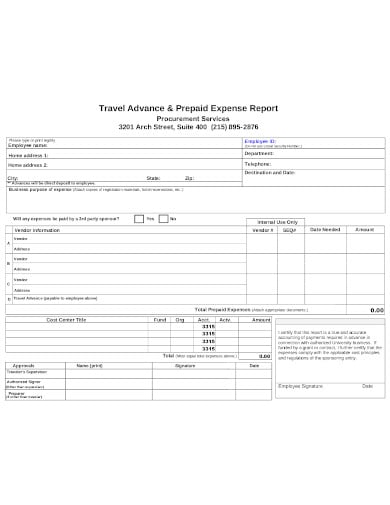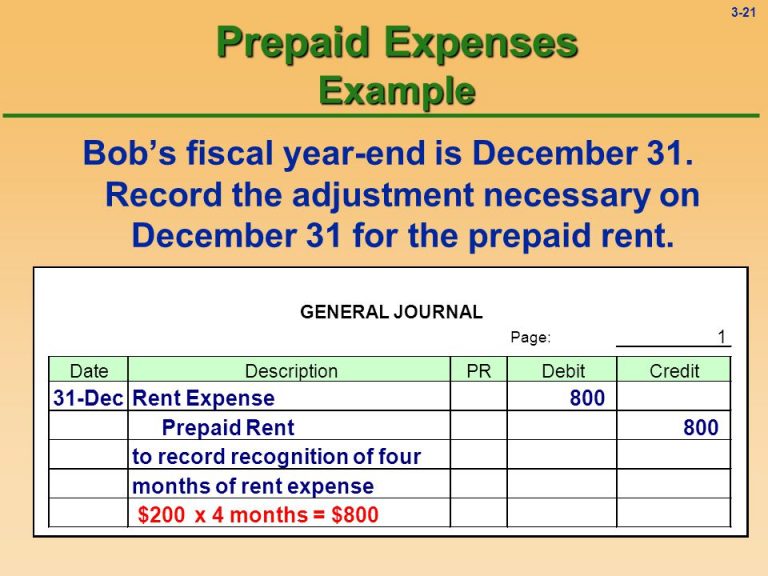
The “12-month rule” allows for the deduction of a prepaid expense in the current year if the right or benefit paid for does not extend beyond the earlier of: The following are general rules to qualify for the prepaid expense tax deduction and how they can impact your business. However, the IRS allows the accelerated deduction of certain prepaid expenses, with some complex restrictions involved. The general rule for prepaid expenses is that any prepayment for a service or benefit must be capitalized and amortized over the useful life of such payment. Under a single account system, a memorandum T account is prepared to represent expense and asset both.Accelerating deductions for prepaid expenses is a good way to save on your taxes for the current year.

Period end adjustment for expenses not yet incurred and paid in advance
#PREPAID EXPENSES FULL#
Therefore when the insurance premium is paid in full at the beginning of the insurance coverage, the prepaid expense account for insurance is debited and the cash account is credited in the balance sheet.

These expenses are always recorded in the current asset of the balance sheet. Though insurance payment is an expense but however the prime reason for undertaking an insurance coverage is to receive future benefits from this expense. Though expenses are usually recorded as a liability in the balance sheet but these expenses are a slight deviation from the theory because the privileges can be incurred in the future.Īn example of prepaid expense is an insurance premium. These expenses are expenses incurred because of payments that have been made in advance. Period end adjustment for expenses incurred but not yet paidĪt the start of the next accounting period, a reversal of period end adjustment is neededĪn alternative and time-saving method, called a single account system, is to prepare a memorandum (not part of double-entry book-keeping) T account to represent expense and liability both. On payment of expense during the accounting period The related journal entries (two account systems) are as follows: To record this transaction, the accrued expense is recorded as a credit in the liability account and the office supplies expense is recorded as a debit in the Balance sheet. Accrued expenses are expenses that have been incurred but the payment has not been made yet.Īn example of accrued expense includes: Goods received but no invoice has been delivered for payment. Where prepaid expenses are included in the current asset, accrued expenses are included in the current liability. The accrued expense is the exact opposite of prepaid expense. The accrual basis of accounting gives a better measurement of profitability than does the cash basis because the accrual basis matches revenue with expenses that an entity incurred to earn it. Under the accrual basis of accounting, expenses are matched with the related income and are reported when the expense is incurred, not when the cash is paid. Under the cash basis of accounting, income and expenses are reported in financial statements when the cash is received or paid. The accrual concept is the most fundamental principle of accounting which requires recording income when they are earned and not when they are received in cash, and recording expenses when they are incurred and not when they are paid.

The expense is recorded in the accounting period in which it is incurred. An accrued expense, also known as accrued liabilities, is an accounting term that refers to an expense that is recognized on the books before it has been paid.


 0 kommentar(er)
0 kommentar(er)
